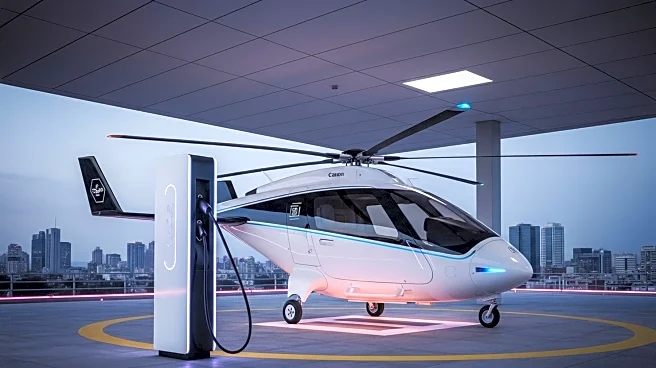What's Happening?
The Trump administration has announced a new pilot program aimed at fast-tracking the development and integration of electric air taxis in the United States. The Department of Transportation, through the Federal Aviation Administration's Electric Vertical Takeoff and Landing Integration Pilot Program (eIPP), will work on creating new regulations and frameworks to ensure the safe operation of these vehicles. The initiative will involve partnerships with private companies and local governments, and will include at least five pilot projects over a three-year period. The program will test both piloted and unmanned electric air taxis, also known as eVTOLs, for various uses including cargo delivery and emergency medical transport. Companies like Joby Aviation and Archer Aviation have expressed interest in participating, highlighting the potential for the U.S. to lead in advanced aviation technology.
Why It's Important?
This initiative represents a significant step towards establishing the U.S. as a leader in the emerging field of electric air taxis, which could revolutionize urban transportation. The program is expected to create high-paying jobs in manufacturing and technology sectors, boosting economic opportunities. By advancing the development of eVTOLs, the U.S. could set global standards for safety and efficiency in this new mode of transport. The involvement of major aviation companies indicates strong industry support, which could accelerate the commercial viability of air taxis. This could lead to reduced traffic congestion and lower emissions in urban areas, aligning with broader environmental goals.
What's Next?
The FAA will soon begin accepting proposals for participation in the pilot program, with a minimum of five participants to be selected. As the program progresses, it will be crucial to monitor the development of regulatory frameworks and the outcomes of the pilot projects. The success of these projects could pave the way for widespread adoption of air taxis, influencing future transportation policies and infrastructure development. Stakeholders, including local governments and the aviation industry, will likely play a key role in shaping the program's direction and ensuring its alignment with public safety and environmental standards.








